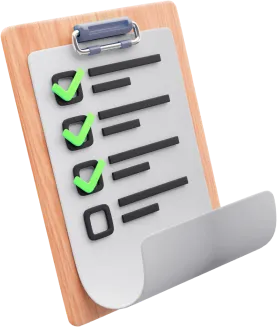A residential property management glossary: key terms and fees defined

When you are new to residential property management or renting, it can be challenging to understand all the terminologies used. This article will define some of the most common terms and fees associated with property management. Understanding these definitions enables you to make more informed decisions when working with a property manager. So let's get started with some must-know terms!

Important terms to know
Property Manager:
A residential property manager is an individual or company specializing in residential properties. The property manager is responsible for leasing, maintaining, and collecting rent from tenants. They are also often responsible for coordinating repairs and other services to keep a residential property in good condition.
Rent:
Rent is the monthly amount a tenant must pay to use the residential property. This amount should be clearly outlined in the lease agreement and will remain fixed unless both parties agree to a change.
Lease Agreement:
A lease agreement is a formal contract between a tenant and a landlord or property manager. It outlines the rental terms, such as the length of the lease, monthly rent amount, security deposit, and other rules that homeowners and renters must follow.
Security Deposit:
A security deposit is a money held by the landlord or property manager to cover any property damage caused by the tenant. The security deposit is typically equal to one month's rent but can vary depending on the terms of the lease agreement.
Eviction:
An eviction is a legal process where the landlord or property manager removes an individual from a residential property due to a breach in the lease agreement. Evictions could be due to non-payment of rent, damage to the property, or other contract violations.
Maintenance Costs:
Homeowners or property managers incur ongoing maintenance costs to keep a residential property in good condition. Maintenance costs could include repairs, landscaping, pest control, or other services.
Rent Increase:
A rent increase is when the landlord or property manager changes the rent a tenant must pay. Rent increases occur due to market conditions, inflation, or other factors.
Subletting:
Subletting occurs when a current tenant allows someone else to stay in the residential property they are renting while they remain responsible for the rent and lease agreement.
Tenant Turnover:
Tenant turnover is when a tenant vacates the residential property and finding a new tenant begins. Tenant turnover can involve advertising, viewing properties, processing applications, and other steps.
Move-out Inspection:
A move-out inspection is an assessment conducted by the landlord or property manager to evaluate the condition of residential property after a tenant has vacated. This inspection will typically determine if any damages occurred and what deductions should be taken from the security deposit.
Lease Renewal:
A lease renewal is when a tenant agrees to extend their current lease for another term. A lease renewal means that both parties agree to the same terms outlined in the original lease agreement for an additional period.
Property Tax:
Property tax is a fee imposed on residential property owners by their local government. This amount can vary depending on the size, location, and other factors related to residential property.
Insurance Premiums:
Insurance premiums are costs incurred by residential property owners to protect the property from damage, loss, or liability. These premiums are typically paid in monthly installments and may vary depending on the type of coverage and other factors.
Utilities:
Necessary services that residential property owners must pay for to maintain their property. These could include electricity, water, gas, garbage collection, internet, and other services. The cost of utilities can vary depending on the location, size of the residential property, and other factors. Renters usually pay for utilities on their property.

Important fees to be aware of
Management fee:
A management fee, often charged monthly, pays for services like accepting and processing rent payments, property inspections, maintaining the property, and handling emergency maintenance calls. This fee typically ranges from 7-10% of the collected rent. Always double-check a potential manager's policy on monthly payments before deciding to use their services. Some charge a flat rate instead of a percentage of collected rent. The cost of this percentage varies depending on the company or individual and their location.
Maintenance fee:
When you own a property, monthly maintenance costs are inevitable. A residential property manager charges a maintenance fee for repairs and cleaning. This fee can vary depending on the services provided and should be outlined in the lease agreement. Some property managers may charge a fee to cover the cost of repairs that they have to take care of for tenants each month, while others may bill you based on individual incidents. In either case, the manager or management company handling your property may charge you extra for their services in dealing with each incident.
Leasing fee:
In addition to other potential fees, your property manager might charge a leasing fee (also called a new tenant placement fee) to cover the cost of marketing your property and Showing it to prospective tenants. Leasing fees can include but are not limited to the costs of advertising online or in print, taking applications from interested parties, screening applicants, and handling move-in logistics. Leasing fees are charged as a flat rate or percentage of the monthly rent collected.
Lease-renewal fee:
Many property managers forego this, but some will charge their tenants a lease-renewal fee. The fee may be charged as a flat rate or percentage of the monthly rent and is to cover the time it takes to renew the lease with the tenant's signature.
Vacancy Fee:
Some property managers may try to collect a fee from you even if your rental property is vacant and not generating any income. These vacancy fees can be either a small flat fee or the regular monthly management fee, regardless of whether rent is being accrued.
Late Fees:
Late fees are charges imposed when tenants do not pay their rent on time. These fees can vary depending on the terms of the lease agreement and should be outlined in the document.
Broker/Agent Fees:
Broker/agent fees are payments made to an individual or company for helping a residential property owner or tenant purchase, lease, or manage the residential property. This fee is typically a certain percentage of the total cost and may vary depending on the services provided.
These are just some of the most common residential property management fees and terms you will need to become familiar with when working with a residential property manager. Read through any lease agreement carefully to understand all the terms and fees associated with renting residential property. Doing this ensures that you are protected and that your residential property is well managed. An excellent residential property manager can help you navigate the process and ensure that you are making the best decisions for your residential property.
Additional resources for property management:
The different kinds of property management companies
Doorstead's comprehensive guide to property management
A complete guide to renting your home
Did you find this article explaining standard rental terms and fees helpful? If so, please share it with your friends, family, or anyone who might find it useful. And if you're looking for more helpful tips and resources on property management and renting, visit our blog.












.jpg)





















































































.avif)
